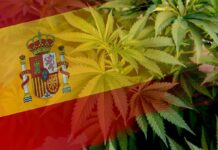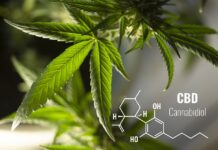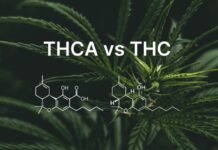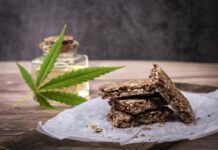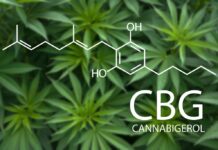Delta-8 is a cannabinoid compound that’s derived from hemp, and we’re going to go over some key differences between CBD and Delta-8. Delta-8 is a product often sold by CBD companies. The way these companies market Delta-8 is sometimes misleading, so we’re going to be transparent and upfront. There are many claims out there that say Delta-8 is CBD, and that is simply not true. We’re going to set the record straight in this article. Let’s dive in.
What Is Delta-8, And Where Did It Come From?
Delta-8 is an abbreviation for its scientific name, delta-8-tetrahydrocannabinol. The word tetrahydrocannabinol is where we get the acronym THC. So, it’s proper name is Delta-8 THC. As we mentioned before, companies like to claim it is the same as CBD, so that’s why they drop the “THC” off the name.
Now, don’t get confused, there is a key difference between traditional THC, or Delta-9 THC (found in marijuana) and Delta-8. This popular new cannabinoid is naturally occurring in hemp but not in high concentrations. Due to the low concentration, labs will extract Delta-9 from both CBD and its more potent cousin, Delta-9. It’s this form of Delta-8 that’s providing the new “legal high.”
So, how do they get Delta-8 out of THC or CBD? Well, the process includes the use of solvents, acids, rinsing, drying, and the most important—testing. If the final solution isn’t tested properly, you won’t have maximum purity. That’s why it’s so important to know your CBD or THC products are coming from a reputable source.
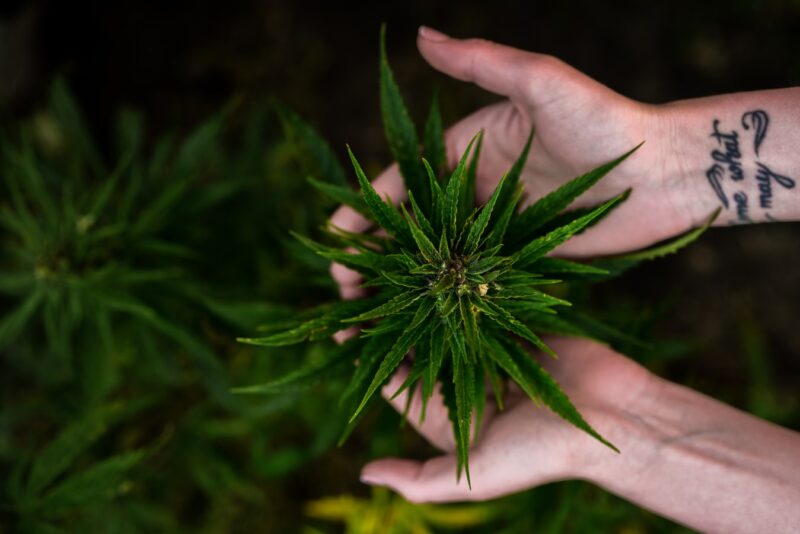
Delta-8 & CBD: Key Differences
So, we know Delta-8 and CBD are different now. Let’s go over the key differences that really set these two apart. You can find out more if you just click here.
Legality
When it comes to legality, Delta-8 is treading in murky waters. Remember the Farm Bill passed in 2018? It legalized the growing of hemp and the extraction of CBD across the US. Except, things aren’t so cut and dry for Delta-8 in a few states. As of now, Delta-8 is legal in almost every state, except Alaska, Arizona, Arkansas, Colorado, Delaware, Kentucky, Idaho, Iowa, Mississippi, Montana, New York, Rhode Island, Utah, Vermont, and Washington. Even so, many states aren’t sure what to do because they’ve realized that people are still getting a high from this new product.
Delta-8 Is Psychoactive
So, we know that Delta-8 is a psychoactive compound that is virtually identical to THC. It contains many of the same properties and has a similar effect on the nervous system. Due to this, many CBD companies make their marketing campaigns vague when it comes to Delta-8. This is due to legal reasons.
Despite the fact that Delta-8 is psychoactive, almost all users report that it is a more energetic high than THC. What they mean is that you won’t be totally out of it on Delta-8, and you’ll retain your ability to focus. When you take CBD, you don’t experience any kind of high. That’s why Delta-8, that’s extracted from CBD, may have less potent effects. Now, you’re probably wondering what it feels like to take Delta-8 compared to CBD.

What Happens When You Take It
Since Delta-8 has so much in common with Delta-9, it has many of the same effects as full-blown THC. Unlike THC, Delta-8 does not give you that “too high” feeling that causes paranoia and anxiety. The relaxation effects of THC have been reported as beneficial for many people, but with that comes the “high” feeling. Delta-8 provides the feelings of relaxation without the feelings of euphoria that THC provides.
Delta-8 is slower than THC. Delta-9, or THC, is much quicker acting than Delta-8. That is why people who take it don’t experience an intense high or feelings of paranoia or anxiety. With CBD, on the other hand, you don’t get any psychoactive effects—except for minor relaxation—depending on the CBD. Since everyone is different and you may not be sure how it will affect you, how do you know Delta-8 is safe?
How Do You Know Delta-8 Is Safe To Take?
As we mentioned earlier, testing is one of the most important parts of the extraction of Delta-8. Testing ensures that the purity is good and there are no unwanted or needed additives in your Delta-8 product. Many companies that test will include a QR code on packaging that allows you to pull up testing information and analyses.
To be sure the Delta-8 you buy is safe, we recommend that you source your Delta-8 from 100% plant-based sources. One way to ensure that your Delta-8 is naturally sourced is to purchase from a reputable company. Otherwise, you won’t know what you’re putting into your body.
As a supplier of CBD-based products is honest about the origins and effects of their Delta-8. This honesty shows how much they care about their customers.
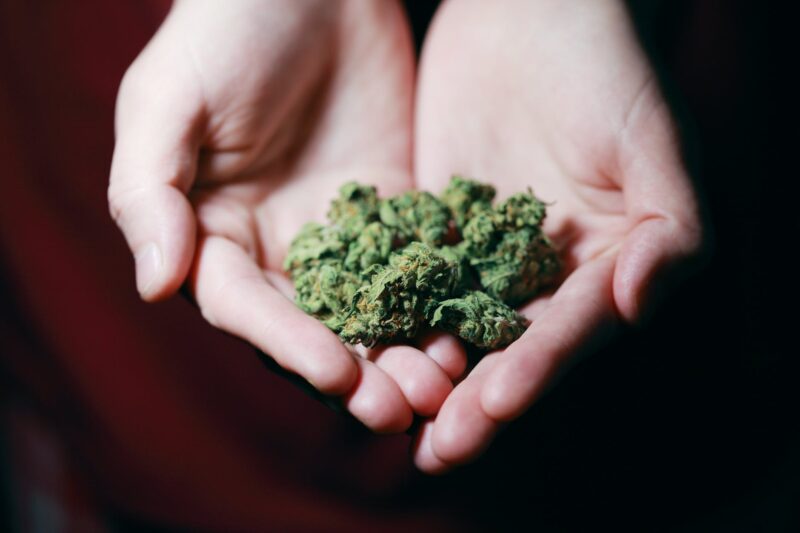
How Much Can I Take?
If you’ve used traditional THC in the past, Delta-8 will feel weak. For new users, we suggest taking the least amount possible because everyone is different. Body chemistry is a big factor when it comes to THC-containing products. Depending on how your body processes the cannabinoids, you will receive different levels of effects.
There aren’t any hard-set rules about how much Delta-8 you can take. While it is a natural product, we do suggest starting slow. Like THC, you need to pace yourself and start at a low dose to find what works best for you. Something like a tincture will work more quickly, while a gummy editable will work slower. For reference, consider that Delta-8 products often are dosed two times higher than THC due to its weaker effects.
It’s common for people to think gummies are not working and take too much before it takes effect, so take it slow at the beginning. The best rule of thumb when taking any kind of edible is to practice patience and await effects before taking more.
Be sure to visit https://www.astriafarm.com/ to learn more about Delta 8. Also, follow them on Instagram to learn more about newly released Delta 8 products.



